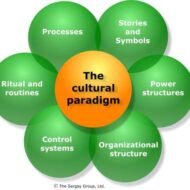Posted by Managementguru in Business Management, Change management, Human Resource, Interview Questions, Strategy
on Jun 3rd, 2014 | 0 comments

Social Media Recruiting Finding the right job is a herculean task and it reminds me of this saying, “When you want to have something you’ve never had, You have to do something you’ve never done.” Job Hunting: I would rather use the term ‘Job Hunting’ than ‘Job Searching’ because competition is so much so that you feel lost in the crowd. The job market scenario does not look very appealing in spite of being well-qualified for the respective positions. Everybody talks about ‘Cracking the Jobs with Hacking the Resumes’ and ‘Preparing a killer resume that is likely to pull you towards a dream job’. The sad part of the story is, “Dream jobs never exist and how can you land on something that is not there?” Of course, I go with you, ‘Resumes are indispensable for kick-starting the process; yet you need that extra something, which I would like to call the ‘J’ factor (people are getting bored of ‘X’ factor ‘J’ stands for job factor). Social Media Networking: Let me put it simply; you have to get noticed to capture the plum job. Market yourself in such a way that recruiters can never say no. Well, you guessed it right, “SOCIAL MEDIA NETWORKING” within quotes is the need of the hour and NOW-A-DAYS recruiters gauge the personality of the prospective candidates through social media networking sites like FACEBOOK, TWITTER AND LINKEDIN. Are you a people-person? Social media recruiting has become indispensable and most of the recruiting agencies overlook traditional channels like employment exchanges and classifieds and prefer the former source as the approach is more direct and focused. If you have a well-built profile in Facebook or LinkedIn your chances of landing on an enterprising job is guaranteed. Further. if you are an active member of a LinkedIn group or a Google Community, you stand a bright chance to capture the attention of big recruiters searching for the right talent. How prepared are you? The question is ‘How prepared are you to link a bait’ and ‘What are your chances?’ Social media recruiting has become a routine process in most of the ‘top-most’ companies and if you are not aware of the significance, you have everything to lose. Try to understand that, 40% of people socialize more online than they do face-to-face, 100.000 tweets are sent, 2 million queries are searched on Google and 684.478 pieces of content are shared on Facebook every minute. (Statistics courtesy- http://www.onrec.com/) Bumper Benefits for the recruiter: By using social media as a recruiting source companies straight away Cut the exorbitant outsourcing bill payments to external HR agencies as this is completely free Direct contact with the candidate and can assess his personality first hand Word of mouth referrals through social media (Social media is modern day word of mouth marketing) do the companies and employers Himalayan good by making prospective candidates stand in queue before them which otherwise proves to be a tough and expensive task. There is less spam as the communication is transparent that proves to be a win-win situation for both, the employer as well as the potential candidate Employers can bang on their potential targets by clear-cut job specifications and LinkedIn proves to be the top most destinations for social media recruiters. Social media recruiting fits companies of varying sizes and spheres In a single click the employers and recruiters have access to almost all information needed to write an authentic ‘Biography’ about you. If LinkedIn profile supplies professional information, Facebook shows your personal side. It raises a question though, ‘Are you social media-responsible?’, In other words ‘Are you behaving properly in the virtual...

Posted by Managementguru in Business Management, Human Resource, Organisational behaviour, Principles of Management
on Mar 20th, 2014 | 0 comments

The Ideology of Corporate Culture What is Corporate Culture: the collective beliefs, value systems, and processes that provide a company with its own unique flavor and attitude. Management Attitude: Globalization has necessitated organizations existing in the corporate business world to respond in a unique way in an attempt to enjoy a competitive edge in the market. Corporate culture is a value that keeps an organization intact and helps in building team spirit amongst the members. It is not possible to specifically describe or delineate the concept of culture, yet, people are aware of its fine and striking presence. Let us say that each corporate firm has a dissimilar but unique culture which embraces the values, norms, beliefs and assumptions of the members of the organization and their behavior. It is also greatly induced by the leadership style and management attitude. Role of Culture: Why do organizations need culture as a milieu? Has culture any role in improving the output? Management uses culture as a means to reach out to the employees in an informal manner, to signify what is expected of them plus what is to be expected from the management. Culture cuts through all the levels of an organization and unites the members or employees, to work towards enterprise objectives in a remarkable manner. It is a sort of identity label on the organization and its interest to promote or espouse the value systems through out the organization. Corporate culture encompasses the following qualities enlisted: Quality driven Presence of an informal atmosphere Open communication Customer centric business model Proper and likable dress code Trust and confidence amid employees Value based management CEOs’ as strategic drivers in setting a candid corporate culture CEO’s naturalness and spontaneity with the employees Gratifying employee welfare and security measures Value systems indicated by the vision and mission statements Codified employee behavior Well devised operating strategies Greater autonomy tomanagers at different levels Rewards and recognitions and so on… https://blog.enplug.com/corporate-culture Corporate culture is considered to be a dogma, which many organizations utilize as a means to develop and amalgamate prospective employee groups. An employee learns all about the firm, its activities, the role he is supposed to play, information regarding his superiors, training, career advancements or promotions, pay, employee leave procedures and the long range goals of the organization during the time of induction. The firms should capitalize on this incubation period to spruce up the minds of the employees to act in accordance with the desired values expected by the management. Value Systems: It is inevitable for each and every organization to develop a value system over a period of time based on the founder’s outlook towards business and people working for him. This creates a strong or a weak culture which has an effect on the output or performance of the employees. This also serves as a clear indication whether the organization is proceeding in the right direction. We should never forget that a sound culture eventually aims at achieving the end goals of an organization. The cultural framework of an organization facilitates this process to materialize in a smooth manner. Though intangible in nature, it wields its negative power, when not nurtured appropriately. Flourishing organizations always have pride in their robust cultural back ground, which is a mark of distinction. It definitely shapes up an organization to deliver performance that matches and often surpasses the industry standards. The head of an organization has an important role as a leader as well as a change agent in taking his organization to the next level. The mutual faith and trust between the superior and his subordinates is the anchor point of an organization. Culture – An Intervention Technique: The culture of an...




